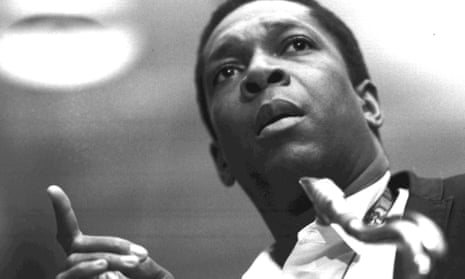There is natural limit to the intensity with which a musician may convey an idea and John Coltrane seems to have overstepped it. He has conceived the idea of devotional modern jazz which on its own terms is as intense form as there is, but his execution of the idea is earnest to the point of being harrowing. After wading through his tortuous confessional on the sleeve and suffering repetitive incantation of the title words during the first track of A Love Supreme (HMV mono CLP, 1869; stereo CSD 1869) one is presented with an exercise in musical monotony.
There are good ideas to be heard floating freely, but it is the poor ones that are pursued to the bitter end and beyond. On My Favourite Things (Atlantic mono ATL 5022; stereo SAL 5022) in which the title number runs for about three times as long as it need, there are patches of relief especially on Ev’ry time We Say Goodbye and But Not for Me. Combined with the better parts of A Love Supreme, this might have made one good album. As it is, Coltrane exhausts his material and his listeners.

Comments (…)
Sign in or create your Guardian account to join the discussion